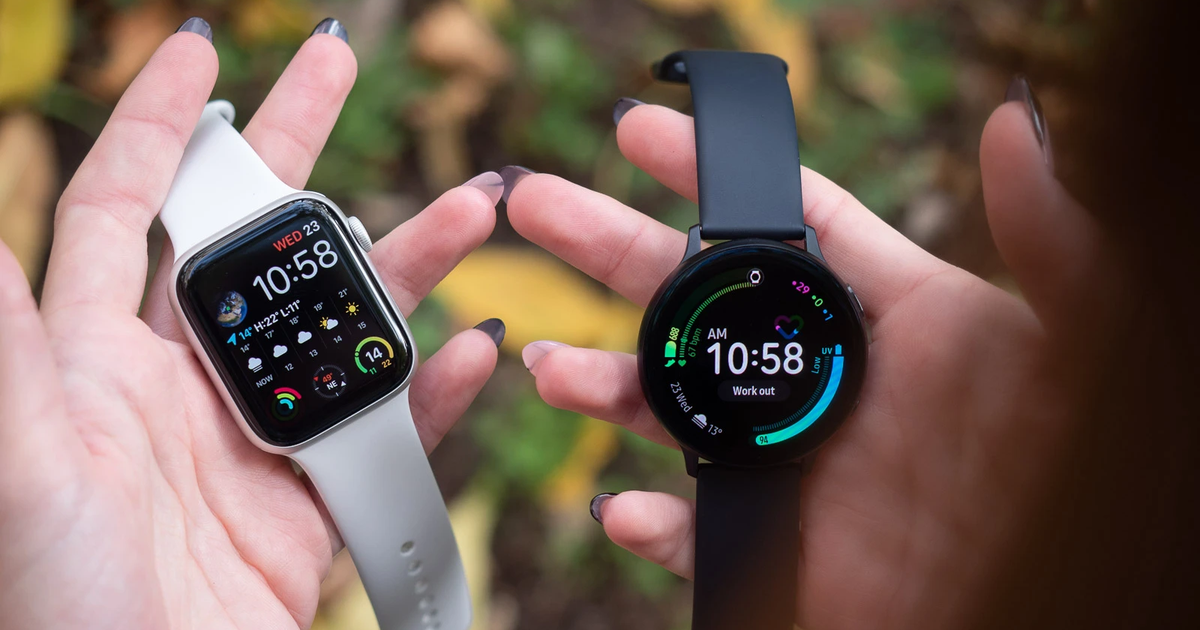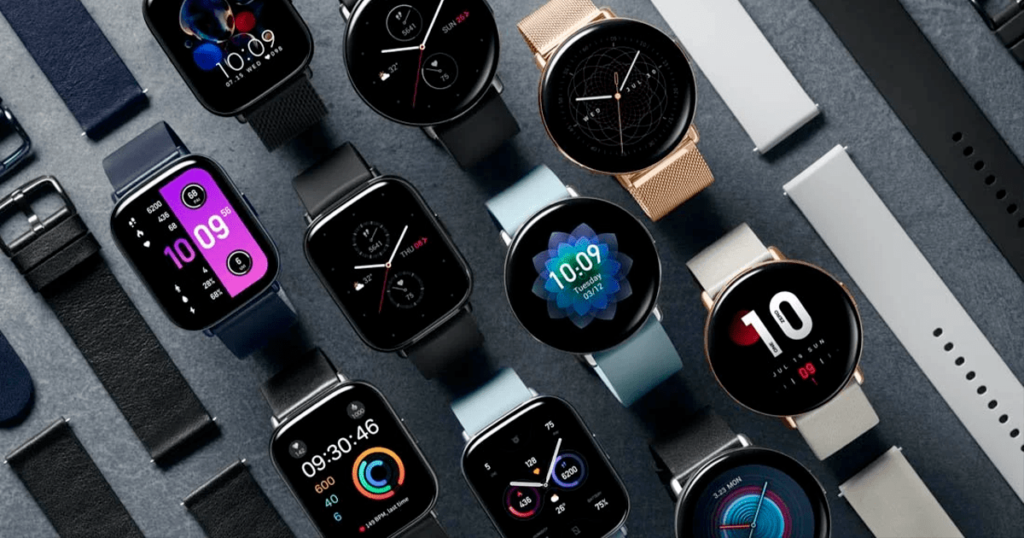Wearable Technology: A Closer Look at Fitness Trackers, Smartwatches, and Health Monitors
The Evolution of Wearable Technology
Wearable technology has come for the Fitness world. From clunky gadgets to sleek and sophisticated devices, the evolution of wearables has been nothing short of remarkable. These advancements have not only transformed the way we live but have also significantly impacted the realms of health and fitness.
The Impact of Wearables on Health and Fitness
The integration of wearable technology into our daily lives has ushered in a new era of health and fitness monitoring. These devices have the potential to revolutionize the way we approach our well-being. In this article, we will take a deep dive into three categories of wearables: fitness trackers, smartwatches, and health monitors, to explore their features, benefits, and drawbacks.
Fitness Trackers
![]()
Understanding Fitness Trackers
Fitness trackers are compact devices designed to monitor various aspects of your physical activity and health. They have become our constant companions, providing valuable insights into our daily routines.
How Fitness Trackers Work
At the heart of fitness trackers are a variety of sensors that capture data related to your movements, heart rate, and sleep patterns. These sensors work together to provide you with a comprehensive picture of your overall health.
Features That Define Fitness Trackers
Step Counting: Your Daily Activity Buddy
Step counting is a fundamental feature of fitness trackers. It keeps track of the number of steps you take each day, encouraging you to stay active and meet your fitness goals.
Heart Rate Monitoring: Keeping Your Pulse on Health
Heart rate monitoring is a crucial feature for assessing your cardiovascular health. By continuously tracking your heart rate, fitness trackers can help you identify anomalies and gauge the intensity of your workouts.
Sleep Tracking: Uncover Your Sleep Patterns
Understanding your sleep patterns is essential for overall well-being. Fitness trackers monitor your sleep, providing data on the duration and quality of your rest, helping you make improvements where needed.
Calorie Tracking: Managing Your Energy Balance
Calorie tracking helps you maintain a healthy diet by estimating the number of calories burned during physical activities. This feature assists in managing your energy balance and achieving weight-related goals.
Top Fitness Tracker Brands
Fitbit: Pioneers in Activity Tracking
Fitbit has been a trailblazer in the fitness tracker industry. Known for its accuracy and user-friendly interface, Fitbit devices have gained a loyal following worldwide.
Garmin: For the Fitness Enthusiasts
Garmin specializes in fitness-oriented wearables. Their devices are favored by serious athletes and outdoor enthusiasts for their advanced features and durability.
Apple Watch: Combining Style and Functionality
The Apple Watch has redefined the smartwatch market. Beyond its stylish design, it offers a wide range of health and fitness features that seamlessly integrate with your Apple ecosystem.
Pros and Cons of Fitness Trackers
The Benefits of Data-Driven Fitness
Fitness trackers empower users with data. By providing real-time information on your physical activity and health, they motivate you to make healthier choices.
Accuracy vs. Convenience
While fitness trackers offer a wealth of information, they are not immune to limitations. Factors like accuracy and battery life can vary, making it important to strike a balance between features and practicality.
Smartwatches

What Sets Smartwatches Apart
Smartwatches, on the other hand, go beyond tracking your fitness activities. They offer a wide array of features and capabilities, making them versatile companions for your daily life.
Smartwatches vs. Fitness Trackers: Choosing the Right Fit
Selecting the right wearable depends on your specific needs and preferences. We’ll explore the differences between smartwatches and fitness trackers to help you make an informed decision.
Features That Make Smartwatches Smarter
Notifications: Your Wrist-Based Personal Assistant
One of the standout features of smartwatches is their ability to deliver notifications directly to your wrist. This convenience allows you to stay connected without constantly checking your phone.
Health and Fitness Tracking: Beyond Step Counting
Smartwatches excel at health and fitness tracking. They offer a broader range of metrics, including heart rate monitoring, GPS tracking, and more, giving you a comprehensive view of your well-being.
Leading Smartwatch Brands
Apple Watch: Beyond Timekeeping
The Apple Watch is a standout in the smartwatch market, offering a plethora of features beyond timekeeping. It seamlessly integrates with your iPhone, providing access to apps, messages, and health data.
Samsung Galaxy Watch: Style Meets Substance
Samsung’s Galaxy Watch series combines stylish designs with robust fitness and health tracking capabilities. These watches cater to both fashion-conscious and health-conscious consumers.
Garmin Venu: Made for Active Lifestyles
Garmin’s Venu series is tailored for those with active lifestyles. With advanced fitness tracking, built-in GPS, and long battery life, they are a favorite among athletes and adventurers.
How Smartwatches Elevate Health and Fitness
Health Apps: Your Health Dashboard
Smartwatches come equipped with health apps that serve as your personal health dashboard. From tracking your workouts to monitoring your sleep, these apps provide valuable insights.
Workout Tracking: More Than Just Steps
Smartwatches offer detailed workout tracking, allowing you to monitor your performance and set goals. Whether you’re running, cycling, or swimming, these devices can keep up with your activities.
Pros and Cons of Smartwatches
Versatility: From Boardroom to Gym
The versatility of smartwatches extends beyond fitness. They seamlessly transition from the boardroom to the gym, making them a valuable accessory for any occasion.
Battery Life: Balancing Act
One challenge faced by smartwatches is battery life. With a multitude of features, optimizing battery usage can be a delicate balancing act. We’ll explore strategies to maximize your smartwatch’s uptime.
Health Monitors
The Power of Health Monitors
Health monitors are a category of wearables dedicated to tracking specific health parameters. They provide valuable insights for managing chronic conditions and proactively monitoring your health.
Types of Health Monitors
Blood Pressure Monitors: Guarding Your Heart Health
Blood pressure monitors are essential for those with hypertension or those looking to maintain cardiovascular health. These devices offer accurate readings to help you manage your blood pressure.
ECG/EKG Monitors: Keeping an Eye on Your Heart’s Rhythm
ECG/EKG monitors are designed to detect irregular heart rhythms. They are particularly important for individuals at risk of arrhythmias or those with existing heart conditions.
Glucose Monitors: A Lifeline for Diabetics
For individuals with diabetes, glucose monitors are lifelines. They allow for continuous monitoring of blood glucose levels, aiding in insulin management and reducing the risk of complications.
The Crucial Role of Health Monitoring
Managing Chronic Conditions: Live Well with Data
Health monitors empower individuals with chronic conditions to take control of their health. Regular monitoring of vital metrics can help prevent exacerbations and improve overall well-being.
Early Detection: The Prevention Advantage
Early detection of health issues is one of the most significant advantages of health monitors. Timely alerts can lead to timely intervention, potentially preventing more severe health problems.
Prominent Health Monitor Brands
Omron: Pioneering Blood Pressure Monitoring
Omron is a recognized leader in blood pressure monitoring technology. Their devices are renowned for accuracy and ease of use, making them a trusted choice for many.
Withings: Elegant Health Tracking Solutions
Withings stands out for its elegant and user-friendly health monitoring solutions. Their devices seamlessly blend into your daily routine while providing valuable health insights.
Dexcom: Transforming Diabetes Management
Dexcom has revolutionized diabetes management with continuous glucose monitoring systems. Their technology offers real-time glucose data, transforming the lives of individuals with diabetes.
Integrating Health Monitors into Your Lifestyle
Syncing with Other Devices: A Unified Health Ecosystem
To harness the full potential of health monitors, syncing them with other devices and apps can create a unified health ecosystem. We’ll explore how to seamlessly integrate these devices into your life.
Data Analysis and Insights: Your Health Journey Companion
The data generated by health monitors is valuable only when it’s analyzed and interpreted effectively. We’ll discuss how to gain insights from the data to make informed decisions about your health.
Pros and Cons of Health Monitors
Empowering Self-Care
Health monitors empower individuals to take control of their health. They provide the tools needed for proactive self-care, allowing for more informed decisions and improved well-being.
Cost Considerations and Learning Curve
While health monitors offer numerous benefits, they also come with considerations such as cost and a learning curve. We’ll delve into these factors to help you make an informed choice.
Choosing the Perfect Wearable for You

Tailoring Wearables to Your Goals
Selecting the right wearable device requires aligning its features with your health and fitness goals. We’ll guide you on how to match your objectives with the ideal device.
Lifestyle Compatibility: Finding the Right Match
Considering your lifestyle is paramount when choosing a wearable. Whether you’re a fitness enthusiast or a professional on the go, your wearable should seamlessly fit into your daily routine.
Budgeting for Wearable Tech
Wearable technology comes in a range of price points. We’ll help you navigate the budgeting process, ensuring you get the best value for your investment.
Prioritizing Features That Matter
Not all features are created equal. We’ll help you prioritize the features that matter most to you, ensuring your wearable aligns with your specific needs.
Learning from User Experiences: Reviews and Recommendations
User experiences are invaluable when making a decision. We’ll explore the importance of user reviews and recommendations in guiding your choice.
Maximizing Your Wearable Experience

Setting Up Your Device: The Initial Steps
Getting started with your wearable device can be a breeze with the right guidance. We’ll walk you through the initial setup to ensure a smooth start.
Daily Hacks for Wearable Users
Discover tips and tricks to enhance your daily experience with wearables. From extending battery life to optimizing your fitness tracking, we’ve got you covered.
Data Syncing and Interpretation: Unveiling Insights
Syncing your wearable device with apps and platforms is essential for gaining valuable insights. We’ll explain how to ensure your data is up to date and how to interpret it effectively.
Troubleshooting Common Issues: Smooth Sailing
Every device encounters hiccups from time to time. We’ll troubleshoot common issues you might encounter and provide solutions to keep your wearable running smoothly.
Staying Up-to-Date: Firmware Updates and App Enhancements
Wearable technology is continuously evolving. We’ll discuss the importance of staying up-to-date with firmware updates and app enhancements to ensure you’re getting the best experience.
Conclusion
The Future of Wearable Technology in Health and Fitness
As wearable technology continues to advance, the future holds exciting possibilities for health and fitness enthusiasts. We’ll explore the emerging trends and innovations that promise to shape the wearable landscape.
Embrace the Wearable Revolution for a Healthier Tomorrow
In conclusion, wearable technology has become an indispensable tool for individuals looking to take control of their health and fitness. Whether you choose a fitness tracker, smartwatch, or health monitor, the key is to find the device that aligns with your goals and lifestyle. Embrace the wearable revolution and embark on a journey toward a healthier and more informed tomorrow.
FAQ
What is wearable technology, and how does it work?
Wearable technology refers to electronic devices that can be worn on the body, often as accessories or clothing, designed to collect, process, and transmit data. These devices work through a combination of sensors and integrated technology. For example, a fitness tracker uses sensors to monitor your movements, heart rate, and other data, which is then processed and displayed on the device or synced to a smartphone app.
What are the main types of wearable technology available today?
The main types of wearable technology include fitness trackers, smartwatches, and health monitors. Fitness trackers are primarily focused on monitoring physical activity and health metrics. Smartwatches offer a broader range of features, including notifications, apps, and health tracking. Health monitors are specialized devices for monitoring specific health parameters like blood pressure or glucose levels.
How can fitness trackers help with health and fitness goals?
Fitness trackers provide valuable data on your physical activity, sleep, and more. They can motivate you to stay active by setting daily step goals, track your workouts, monitor your heart rate during exercise, and help you understand your sleep patterns. This data empowers you to make informed decisions about your health and fitness routines.
Are smartwatches just for notifications, or do they have health and fitness features too?
Smartwatches offer far more than just notifications. While they do provide notifications for calls, messages, and apps, they also have robust health and fitness tracking features. Smartwatches can monitor heart rate, track workouts, provide GPS navigation, and even act as health dashboards with various health-related apps.
What are the advantages of using health monitors like blood pressure or glucose monitors?
Health monitors, such as blood pressure or glucose monitors, are essential for managing specific health conditions. For example, blood pressure monitors help individuals with hypertension track their readings regularly, enabling better control. Glucose monitors are vital for diabetics to manage insulin and avoid complications. These devices offer early detection and help in maintaining optimal health.
How do I choose the right wearable for my needs and lifestyle?
Choosing the right wearable depends on your goals and lifestyle. Assess your priorities – whether it’s fitness tracking, staying connected, or managing a specific health condition. Consider factors like design, compatibility with your devices, battery life, and cost. Reading user reviews and seeking recommendations can also help you make an informed decision.
What should I look for when setting up a wearable device?
When setting up a wearable device, follow the manufacturer’s instructions carefully. Usually, you’ll need to download a companion app, pair the device with your smartphone, and enter your personal information. Make sure to enable notifications and set up any relevant preferences. Calibrate sensors as needed and ensure that the device is securely fastened to your body for accurate readings.
Can you offer some tips for extending the battery life of wearables?
To extend the battery life of your wearable device, consider the following tips:
Adjust display brightness and timeout settings.
Disable unnecessary notifications and background apps.
Turn off features like GPS when not in use.
Keep the software and firmware updated.
Charge the device regularly to prevent deep discharges.
How can I troubleshoot common issues with wearables?
Common issues with wearables include connectivity problems, inaccurate readings, or device freezes. To troubleshoot, start by rebooting the device and ensuring it’s adequately charged. Check for firmware updates and ensure proper placement on your body. If issues persist, consult the manufacturer’s support resources or contact customer service for assistance.
What can we expect from the future of wearable technology in health and fitness?
The future of wearable technology in health and fitness is promising. We can expect more advanced sensors, improved accuracy, and enhanced integration with healthcare systems. Wearables may play a significant role in early disease detection, personalized medicine, and providing users with even more insights into their health and fitness data. As technology continues to evolve, wearables are likely to become indispensable tools for maintaining well-being.
In our previous article about the “Mastering Travel Gadgets: 11 Pro Tips and Hacks Every Traveler Should Know“, we discussed how wearables like gadgets can help you achieve your health and fitness goals. Now, let’s delve deeper into the world of fitness technology. Whether you’re a fitness enthusiast or just starting your wellness journey, understanding the differences between fitness trackers, smartwatches, and health monitors is crucial. In this post, we’ll explore these wearables in detail. You can also check out our comprehensive guide on choosing the right fitness tracker for your specific needs.
For additional insights into the world of wearable technology and its impact on health and fitness, we recommend checking this post on medium with some reputable sources. Healthline, a well-known health and wellness blog, has an informative article on the benefits of smartwatches in healthcare. It’s an excellent read if you want to understand how smartwatches are transforming the medical industry.





